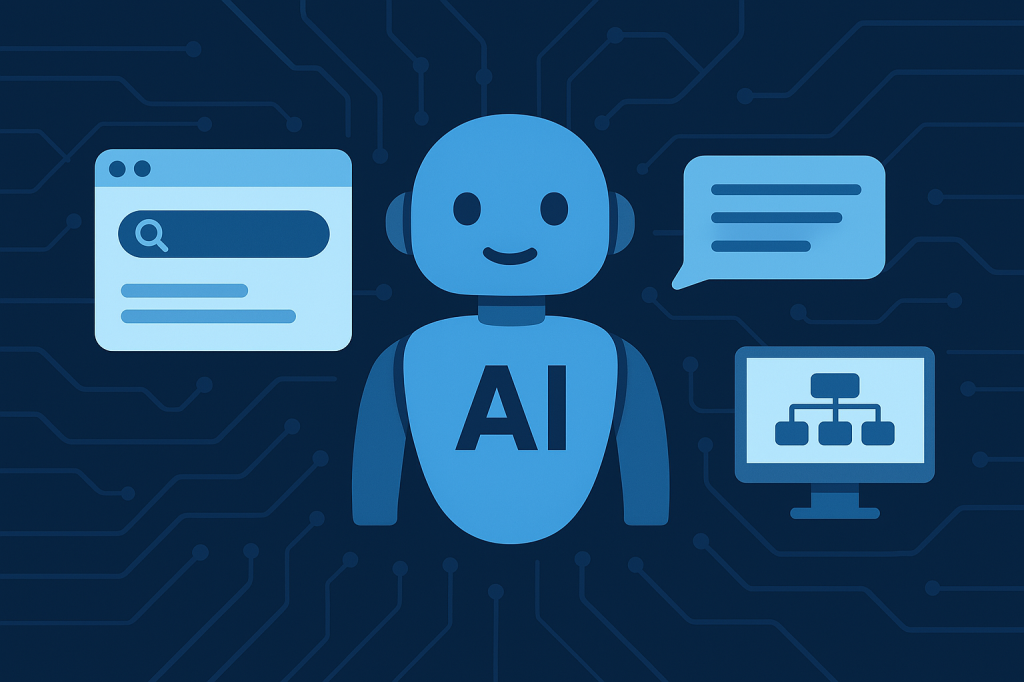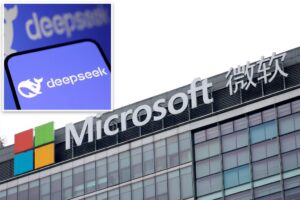Genspark’s Super Agent Elevates the Competition in the General AI Agent Landscape

The Rise of General-Purpose AI Agents
The world of artificial intelligence is witnessing rapid advancements, particularly in the realm of general-purpose AI agents. Recently, Genspark, a startup based in Palo Alto, unveiled its new autonomous system called Super Agent. This innovative technology is designed to manage a variety of real-world tasks, including some surprising applications like making phone calls to restaurants using a realistic synthetic voice.
A New Era of AI Competition
The introduction of Super Agent is a noteworthy development in the race to create a truly functional and versatile general-purpose AI. This trend raises essential questions about its implications for businesses and how these capabilities can be integrated into everyday tasks.
Genspark’s recent launch follows closely on the heels of another startup, Manus, which made headlines for its own AI agent capable of managing tasks such as booking travel or screening resumes, all without needing extensive user guidance. Genspark claims to exceed these capabilities, boasting a robust system built on three essential components:
- Multiple Language Models (LLMs): Utilizing a group of nine different LLMs in a coordinated effort.
- Extensive Toolset: The agent has access to over 80 tools tailored for various functions.
- Proprietary Datasets: More than ten unique datasets enhance its operations.
Demonstrating Versatility
In demonstrations, Super Agent showcased its capabilities by planning a five-day trip to San Diego, managing everything from calculating walking distances to booking restaurants while accommodating dietary restrictions. Other impressive feats included producing a cooking video and creating a South Park-style animated episode related to a recent political incident.
Though these examples may seem consumer-oriented, they illustrate a shift towards more advanced task automation, merging creativity with execution.
Transparency in AI Operations
A significant feature of Super Agent is its ability to visualize its thinking process. Users can see the decision-making steps and the tools engaged at each point. This transparency can make the system feel more relatable and collaborative, encouraging developers to incorporate similar processes into their AI systems.
User-Friendly Interface
Starting with Genspark’s Super Agent is remarkably simple. Users can access it through a web browser without complex setup or personal credentials, making it easily accessible for experimentation. This contrasts with Manus, which requires users to join a waitlist and provide personal information.
How Genspark Achieves Success
Genspark’s approach effectively tackles a core challenge in AI development: tool orchestration at scale. Many current AI agents falter when handling multiple external APIs, but Genspark’s AI manages this complexity. This success is likely due to:
- Dynamic Tool Selection: Utilizing model routing and retrieval methods to choose the right tools based on tasks.
- Model Context Protocol (MCP): This emerging standard allows richer context management throughout tasks, enhancing efficiency and steerability in Genspark’s system.
Comparing Genspark to Manus
Genspark and Manus are both competing in the general-purpose AI space. Manus has gained attention for its multi-agent system that automates a range of tasks by utilizing open-source resources. Despite not having a proprietary model, Manus notably outperformed OpenAI’s agents in efficiency tests.
However, Genspark claims to be ahead, achieving a 87.8% accuracy on the GAIA benchmark compared to Manus’s 86%. This is attributed to Genspark’s unique architecture, which integrates proprietary technology and a broader array of tools.
Big Tech’s Cautious Approach
While startups like Genspark are pushing boundaries, major tech companies remain more conservative in their AI endeavors. For example, Microsoft and OpenAI have developed specialized AI agents aimed at enterprise applications, lacking the ambition and comprehensive capabilities exhibited by Genspark’s solution. Concerns about reliability and risk management are significant for these larger corporations, which limits exploration into more generalized AI models.
Implications for Enterprises
The emergence of efficient and adaptive AI agents is crucial for enterprises. While not every business will require capabilities like making dinner reservations, there is a growing need for agents to execute specific multi-step tasks effectively, such as organizing compliance data or managing customer onboarding processes.
Genspark’s developments in this field highlight a shift towards more capable AI systems that can handle diverse functions with minimal setup, offering a competitive edge over traditional software. As general-purpose agents evolve and become deeply integrated with various tools and voice capabilities, they may start to rival established SaaS and RPA systems.
The landscape of AI capabilities is changing swiftly, paving the way for innovative solutions that could reshape how businesses operate.





